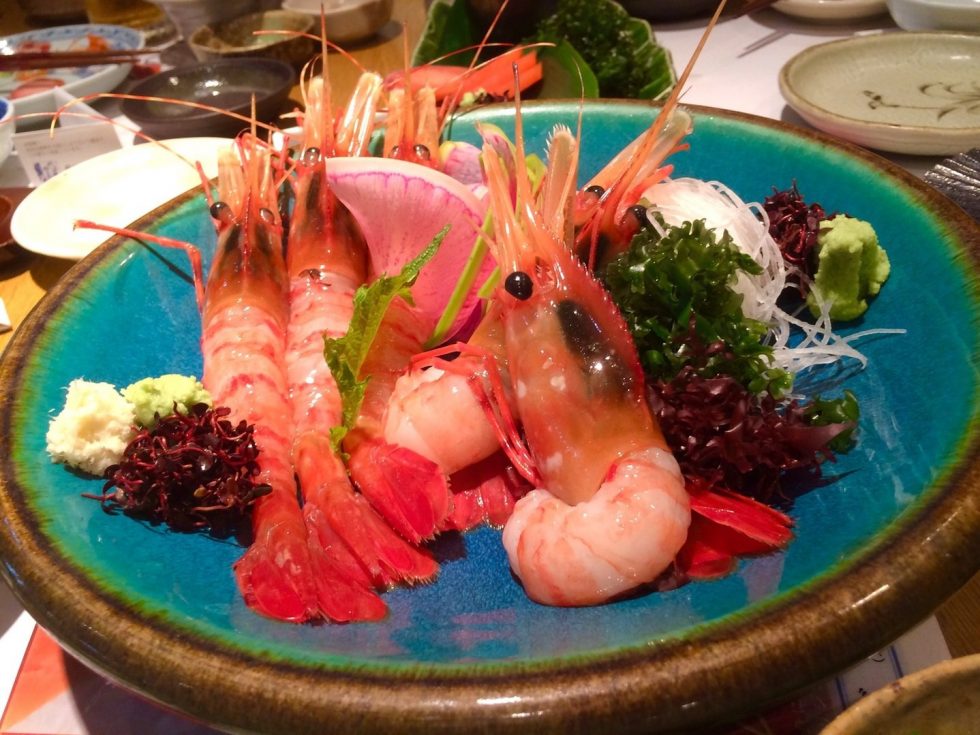
Restaurant English: Mastering Dialogues and Vocabulary
When you go to a restaurant, you usually know what is going to happen and that is because eating at a restaurant usually follows a set script. The waiters aren’t given one to memorize, of course. But even so, waiters and waitresses usually stick to a very narrow range of English phrases. Here is what you can usually expect to hear when going to a restaurant.
English Phrases For Restaurants: Dialogue at the Restaurant
What You Need To Know
Restaurant Staff: From the host or hostess
- “Welcome! How many guests are in your party today?”
- “Do you have a reservation?”
- “Your table is ready, Mr. Knight. Right this way.”
- “Would you like me to take your jackets?”
When you first enter, the host or hostess will want to know how many people are eating with you. They might ask:
- How many?
Or, in an upper class restaurant they may say:
- How many are in your party?
If they can see how many people walked in together, they might simply ask:
- Two?
Some popular places expect you to have a reservation before you come. In that case, the hostess might ask:
- Do you have a reservation?
If the place is really busy, you might have to wait. They’ll say:
- It’s going to be about a 15-minute wait.
If you decide to wait, they’ll write your name on a list:
- Can I get your name?
And then, when it’s your turn to sit:
- Mr. Knight, your table is ready.
The host or hostess will take you to your table with one of these phrases:
- Right this way.
- Follow me, please.
If it’s a nice restaurant, they may ask:
- Would you like me to take your jackets for you?
And then they say goodbye:
- Jacob will be your server tonight.
- Enjoy your meal.
Restaurant Staff: From the waiter or waitress
- “Good evening! I’m Rebecca, your server tonight.”
- “May I start you off with some drinks?”
- “Here are today’s specials.”
- “Are you ready to order?”
- “Would you like fries or a baked potato with that?”
- “How was everything? Can I interest you in dessert?”
The waiter will usually start off by introducing him- or herself:
- Welcome to D’Angelo’s. My name is Rebecca.
Depending on the atmosphere of the restaurant, they may try to make some small talk:
- How are you doing this evening?
If the restaurant has daily specials, the server will tell you about them:
- Let me tell you about our specials today. We have a miso-glazed Chilean Sea Bass with a side of mashed sweet potatoes and sauteed spinach.
Then you’re expected to order drinks:
- Can I get you something to drink?
If you’re not sure, the server will offer to come back again in a few minutes:
- Do you need a little time to decide?
They’ll go around the table to each person, using phrases like these:
- And for you sir?
And for you miss?
- What can I get for you?
Then they’ll leave:
- I’ll be right back with your drinks.
Restaurant English: The main food order
When the waiter or waitress returns, they will ask for your order:
- Are you ready to order?
If the dish you order has a choice of side dishes, they’ll offer to let you choose:
- That comes with either fries or a baked potato. Which would you prefer?
- Would you like fries with that, or a baked potato?
If you ask for something, the server will say:
- Sure.
Or at a fancier restaurant:
- Certainly.
But if you ask for something that’s not available, you’ll hear:
- Oh, I’m sorry. We’re all out of the salmon.
When the waiter or waitress brings you your food, they’ll probably ask:
- Can I get you anything else?
- Would you like anything else?
After you’re finished eating everything, someone will come to collect your dishes:
- Would you like me to take that?
Then the server will come out to ask about your meal and offer dessert:
- How was everything?
- Can I interest you in our dessert menu?
Restaurant English: The bill/check
When you finish with your meal, they’ll offer to bring you the check:
- I’ll bring the check right out.
And sometimes there are questions about the check:
- Would you like me to split it?
- Do you need any change?
- May I help you?
- How many people?
- Are you ready to order?
- Here is your menu.
- Would you like another menu?
- Are you finished with this?
- Please use the buzzer when you are ready to order.
- Smoking (kitsuen) or non-smoking (kinen) sections…
- I’m very sorry that’s sold out.
Restaurant English
Here are 20 common vocabulary terms used in restaurants:
- Menu: A list of food and drinks offered by a restaurant.
- Dessert: A sweet dish served at the end of a meal.
- Buffet: A self-serve dining option where guests can select items from a set display of food.
- Host/Hostess: A restaurant worker who greets and seats guests.
- Chef: A professional cook who is in charge of a restaurant’s kitchen.
- Bartender: A worker who mixes and serves drinks at a bar.
- Appetizer: A small dish served before the main course.
- Entrée: The main dish of a meal.
- Side Dish: A dish served alongside the main course to complement it.
- Dishwasher: A worker responsible for cleaning dishes and kitchen equipment.
- Plating: The presentation of food on a plate, including the arrangement and garnishing of ingredients.
- Server: A restaurant worker who takes orders and serves food and drinks to customers.
- Sommelier: A wine expert who advises on wine selection and pairing.
- Al a carte: A type of menu where each dish is priced separately.
- Busser: A restaurant worker who clears and resets tables and assists servers.
- Line cook: A chef who specializes in preparing food on the line, such as sauces, entrées, and sides.
- Amuse-bouche: A small bite-sized appetizer offered as a preview of the meal to come.
- Table d’hôte: A type of menu where guests choose from a set number of courses for a fixed price.
- A la minute: A cooking method where dishes are prepared to order.
- Mise en place: Preparing and arranging ingredients and equipment needed for cooking.
Here are 15 common cooking-related idioms:
- “to cook up a storm” – to cook with great energy and enthusiasm
- “to bring home the bacon” – to make a living or earn money
- “to be the icing on the cake” – to be the best part of something
- “to have a taste for something” – to have a liking or desire for something
- “to be in the same boat” – to be in the same situation as someone else
- “to be the spice of life” – to add excitement and variety to life
- “to have a recipe for success” – to have a plan or formula for success
- “to stir the pot” – to cause trouble or create conflict
- “to be in a pickle” – to be in a difficult situation
- “to bake one’s cake and eat it too” – to have everything one wants
- “to be left with egg on one’s face” – to be embarrassed or made to look foolish
- “to cook someone’s goose” – to ruin someone’s plans
- “to make a meal of something” – to make something into a big deal or make more of it than necessary.
- “to have a finger in every pie” – to be involved in many different things
- “to cook up an excuse” – to make up a false reason for something.

Restaurant English For Customers:
Here are roughly 50 useful phrases for a customer at a restaurant, divided into questions and answers:
Questions
- Can I see the menu, please?
- Do you have any specials today?
- What do you recommend?
- Can I get a table for two (people), please?
- Is there a vegetarian option?
- Do you have gluten-free dishes?
- Does this have nuts in it?
- Can I have the wine list, please?
- Can I order a drink first?
- Is this dish spicy?
- Can I have this without onions?
- Is there a menu with allergy information in it?
- Is there a children’s menu?
- What is the soup of the day?
- Can I get a glass of water, please?
- Is there any outdoor seating available?
- Can I make a reservation for tomorrow night?
- What are your opening hours?
- When do you open?
- Do you accept credit cards?
- Can I have a refill, please?
- What desserts do you have?
- Can I see the dessert menu, please?
- Can I have the bill, please?
- Do you have a loyalty program?
- Is there a restroom I can use?
- Can I take this to go?
- What are your vegan options?
Answers
- I’ll have the steak, please.
- I would like a glass of red wine.
- Can you make this without the spice?
- This table is perfect, thank you.
- I’m ready to order.
- Could we get some more bread, please?
- I’ll take the special of the day.
- Could you please bring me some napkins?
- This is delicious, thank you.
- Can I get some extra sauce on the side?
- I’ll have the chicken salad.
- Could you please bring the check?
- Do you have any recommendations?
- I’ll have the same, please.
- This is for here, thank you.
- Can I get that to go, please?
- Could I see the manager, please?
- I’ll take a glass of water with lemon.
- I’d like to pay by card.
- Everything was excellent, thank you.
- No, thank you, I don’t need anything else.
- Yes, I would like dessert.
- Could we have separate checks, please?
- I’ll get the bill.
- I’d like to make a reservation.
These phrases should help in various dining situations, making your experience at a restaurant smoother and more enjoyable.
